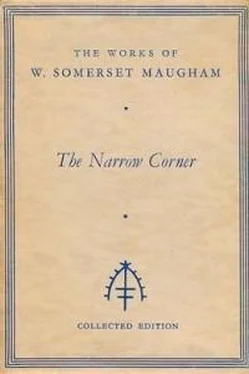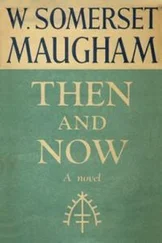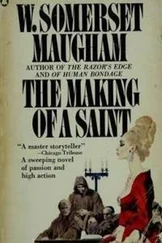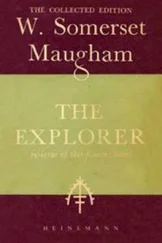“D’you know, he’s as strong as an ox, this blighter,” said he, with a glance of admiration at Erik. “We had one rather nasty little bit of climbing to do, a branch broke and I slipped. I might have taken a nasty toss, broken my leg or something. Erik caught hold of me with one arm, damned if I know how he did it, and lifted me right up and set me on my feet again. And I weigh a good eleven stone.”
“I’ve always been strong,” smiled Erik.
“Put your hand up.”
Fred placed his elbow on the table and Erik did the same. They put palm to palm and Fred tried to force Erik’s arm down. He put all his strength into the effort. He could not move it. Then with a little smile the Dane pressed back and gradually Fred’s arm was forced to the table.
“I’m like a kid beside you,” he laughed. “Gosh, a fellow wouldn’t stand much chance if you hit him. Ever been in a fight?”
“No. Why should I?”
He finished eating and lit a cheroot.
“I must go to my office,” he said. “Frith says, will you all go up there this afternoon? He wants us to have supper with him.”
“Suits me all right,” said the doctor.
“And the captain, too. I’ll come for you about four.”
Fred watched him go.
“Perfect loon,” he said, turning to the doctor, with a smile. “My belief is he isn’t all there.”
“Oh, why?”
“The way he talked.”
“What did he say?”
“Oh, I don’t know. Crazy. He asked me about Shakespeare. A fat lot I know about Shakespeare. I told him I’d read ‘Henry V’ when I was at school (we took it one term), and he began spouting one of the speeches. Then he started talking about ‘Hamlet’ and ‘Othello’ and heaven knows what. He knows yards of them by heart. I can’t tell you all he said about them. I never heard anyone talk in that way before. And the funny thing was that, although it was all a lot of bunk, you didn’t want to tell him to shut up.”
A smile lingered in his candid blue eyes, but his face was serious.
“You’ve never been in Sydney, have you?”
“No.”
“We have quite a literary and artistic set there. Not much in my line, but sometimes I couldn’t help myself. Women chiefly, you know. They’d talk a lot of tosh about books and then, before you knew where you were, they’d be wanting to pop into bed with you.”
“The Philistine dots his i’s and crosses his t’s with a definiteness that is unbecoming,” reflected the doctor, “and when he sees a nail he hits it on the head.”
“You get rather leery of them. But, I don’t know how to explain it exactly, when Erik talked about all that it was different. He wasn’t showing off and he wasn’t trying to impress me. He just talked like that because he couldn’t help it. He didn’t mind if I was bored or not. He was so keen on it all it never struck him, perhaps, I didn’t care a damn about it. I didn’t understand the half of what he said, you know, but somehow, I don’t know, it was as good as a play, if you understand what I mean.”
Fred threw out his observations like stones that you dig up in a garden to prepare the ground for planting and cast in a heap one after the other. In his perplexity he vigorously scratched his head. Dr. Saunders watched him with cool, shrewd eyes. The boy was tongue–tied, and it was diverting in his confused remarks to discover the emotion he was trying to put in words. Critics divide writers into those who have something to say and do not know how to say it, and those who know how to say it and have nothing to say. Often it is the same with men, with Anglo–Saxons at all events, to whom words come difficultly. When a man is fluent it is sometimes because he has said a thing so often that it has lost its meaning, and his speech is most significant when he has to fashion it laboriously from thoughts to which he can see no clear outline.
Fred gave the doctor a puckish glance that made him look like a mischievous boy.
“D’you know, he’s lending me ‘Othello.’ I don’t exactly know why, but I said I wouldn’t mind reading it. You’ve read it, I suppose.”
“Thirty years ago.”
“Of course I may be mistaken, but when Erik was spouting great chunks of it, it sounded quite exciting. I don’t know what it is, but when you’re with a chap like that everything seems different. I daresay he’s crazy, but I wish there were a few more like him.”
“You’ve taken quite a fancy to him, haven’t you?”
“Well, you can hardly help it,” answered Fred, with a sudden attack of shyness. “You’d be a perfect damn fool not to see he’s as straight as a die. I’d trust him with every penny I had in the world. He couldn’t do anyone down. And you know, the funny thing is, though he’s such a big hulking fellow and as strong as an ox, you have a sort of feeling you want to take care of him. I know it sounds silly, but you can’t help feeling he oughtn’t to be allowed about by himself; someone ought to be there to see that he doesn’t get into trouble.”
The doctor, with his cynical detachment, translated in his own mind the young Australian’s awkward phrases into sense. He was surprised and a trifle touched by the emotion that with this shy clumsiness fought for expression. For what emerged from those hackneyed words was the shock of admiration the lad had received when he was confronted with the realisation of something quite startling. Through the oddness of the huge, ungainly Dane, lighting up his complete sincerity, giving body to his idealism and charm to his extravagant enthusiasm, shone, with a warm, all–embracing glow, pure goodness. Fred Blake’s youth made him mystically able to see it, and he was amazed by it and baffled. It touched him and made him feel very shy. It shook his self–confidence and humbled him. At that moment the rather ordinary, handsome boy was conscious of something he had never imagined, spiritual beauty.
“Who would have thought it possible?” reflected the doctor.
His own feelings towards Erik Christessen, naturally enough, were more detached. He was interested in him because he was a little unusual. It was amusing, to begin with, in an island of the Malay Archipelago, to come across a trader who knew Shakespeare well enough to say long passages by heart. The doctor could not but look on it as a somewhat tiresome accomplishment. He wondered idly if Erik was a good business man. He was not very fond of idealists. It was difficult for them in this workaday world to reconcile their professions with the exigencies of life, and it was disconcerting how often they managed to combine exalted notions with a keen eye to the main chance. The doctor had often found here cause for amusement. They were apt to look down upon those who were occupied with practical matters but not averse from profiting by their industry. Like the lilies of the field they neither toiled nor spun, but took it as a right that others should perform for them these menial offices.
“Who is this fellow Frith that we’re going up to this afternoon?” asked the doctor.
“He’s got a plantation. He grows nutmeg and cloves. He’s a widower. He lives there with his daughter.”
IT was about three miles to Frith’s house, and they drove out in an old Ford. On each side of the road grew densely huge trees, and there was a heavy undergrowth of ferns and creepers. The jungle began at the outskirts of the town. Here and there were miserable huts. Ragged Malays lay about the verandahs and listless children played among the pigs under the piles. It was humid and sultry. The estate had once belonged to a perkenier, and it had a stucco gateway, massive but crumbling, of pleasing design. Over the archway on a tablet was the old burgher’s name and the date of erection. They turned down an earth road and bumped along over ruts, hillocks and holes till they came to the bungalow. It was a large, square building not on piles, but on a foundation of masonry, covered with an attap roof and surrounded by a neglected garden. They drove up, the Malay driver sounding his horn with energy, and a man came out of the house and waved to them. It was Frith. He waited for them at the top of the steps that led down from the verandah, and as they came up and Erik mentioned their names, shook hands with them one by one.
Читать дальше
Конец ознакомительного отрывка
Купить книгу










